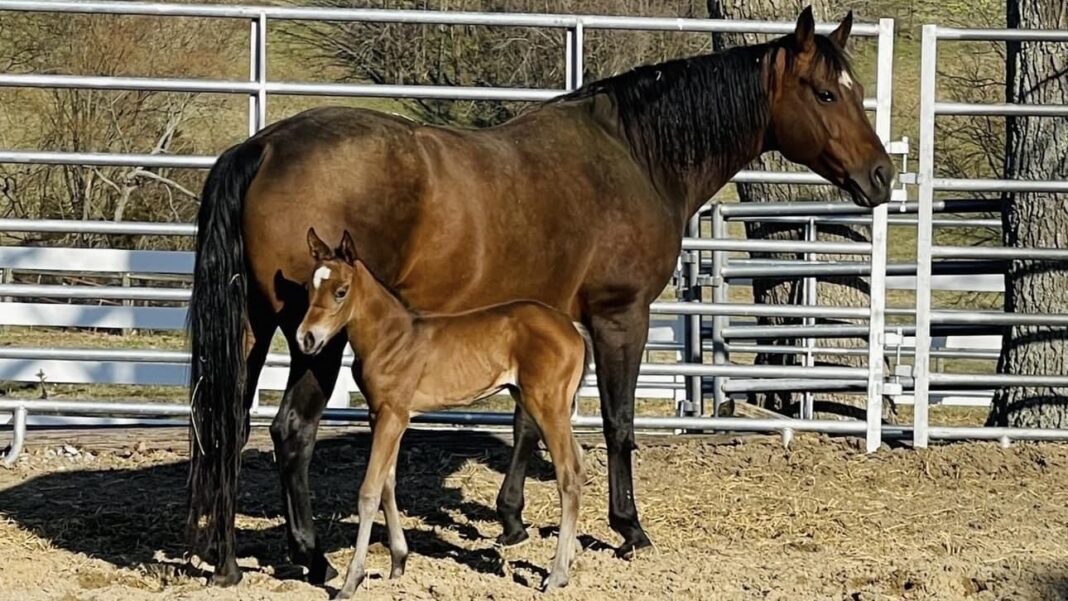As the science and technology associated with breeding horses continues to advance, the landscape of sales is evolving right along with it. It is becoming more common for foals to be sold in-utero and breeders are even selling frozen embryos that buyers can purchase and have transferred into a recipient mare.
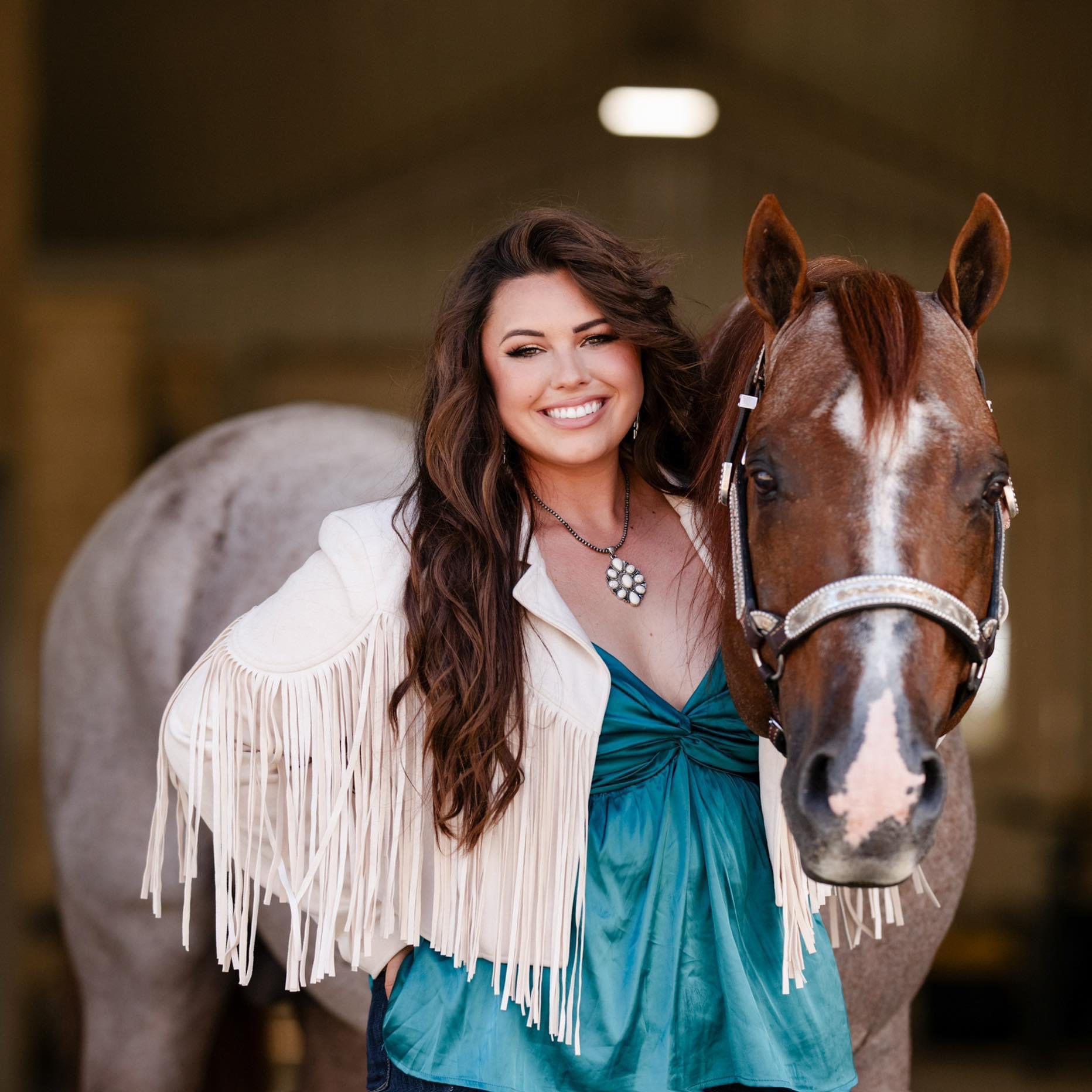 We spoke to Katie Van Slyke, Congress Champion breeder, social media personality, and the new owner of VS Code Red, to get her unique perspective on the pros and cons associated with selling and buying foals before they are born.
We spoke to Katie Van Slyke, Congress Champion breeder, social media personality, and the new owner of VS Code Red, to get her unique perspective on the pros and cons associated with selling and buying foals before they are born.
Defining the Terms
Before we get too far into the details, it is important that we establish the definitions for what is being discussed.
When we refer to an embryo sale, we are referring to the situation in which an embryo has been created, but a pregnancy has not yet been confirmed. These embryos are created in one of two processes: (1) a mare is inseminated and, a few days later, the embryo is flushed or (2) a mare’s eggs are harvested and inseminated through a process known ICSI (Intracytoplasmic Sperm Injection) and then frozen.
As one might imagine, the process of creating, freezing, and transferring these embryos is involved and expensive. Therefore, embryo sales often occur with very high–end mares to make the expense of the process worth it.
When we refer to an in-utero sale, we are referring to the sale of a foal during the pregnancy – typically after a confirmed heartbeat. This could involve the sale of a foal who is being carried by a recipient mare or a foal that is being carried by its own dam.
When we are discussing these different types of sales collectively, we will refer to them as “pre-birth” sales.
Van Slyke’s first foray into this niche area of the breeding world occurred a decade ago when she acquired an embryo out of the mare Vested Wishes – she still owns the resulting foal, who is now nine. Last breeding season, Van Slyke purchased an embryo from Jason Martin out of the champion mare and producer Goody Goody Gumdrops and by Machine Made. The resulting foal, a stunning bay filly, was born in January to a recipient mare.
Benefits Of Pre-Birth Sales
“The biggest benefit of purchasing an embryo is the cost savings…but it’s still quite expensive,” Van Slyke chuckles.
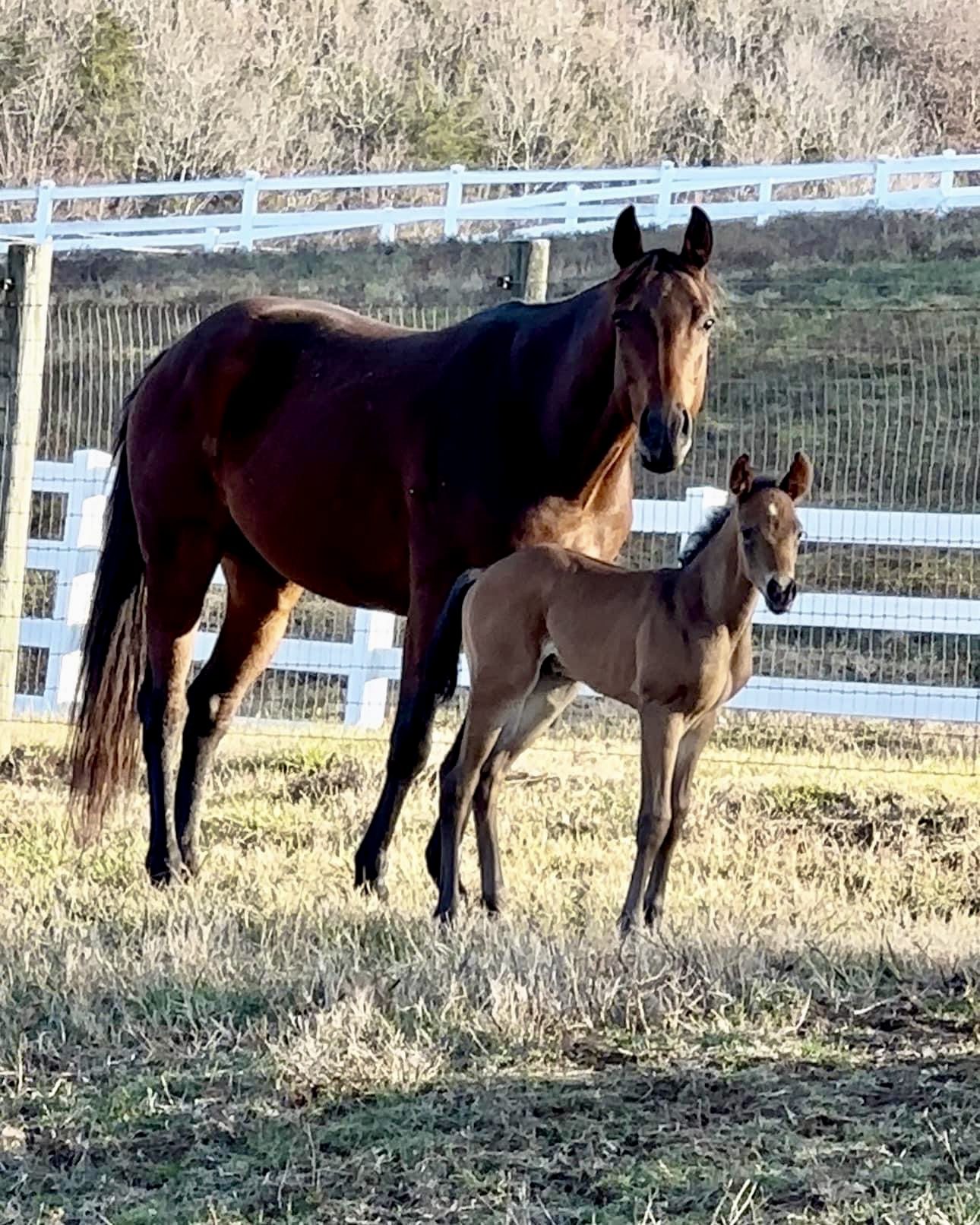 “Realistically, I likely would not be able to purchase the filly that was born this year as a weanling,” she admits. “However, I was able to take the calculated risk based upon the produce record of Goody Goody Gumdrops and the sire record of Machine Made to hedge my bets that, whatever resulted from the cross, it would be quality.”
“Realistically, I likely would not be able to purchase the filly that was born this year as a weanling,” she admits. “However, I was able to take the calculated risk based upon the produce record of Goody Goody Gumdrops and the sire record of Machine Made to hedge my bets that, whatever resulted from the cross, it would be quality.”
“I was able to buy the embryo for my filly for much less than what I would have to pay on the open market for the same foal on the ground. Purchasing embryos allows people with smaller budgets to access the potential for the top stock in the industry without the same sticker shock.”
“Buying an in-utero foal has similar benefits in that it is a risk on the part of the buyer, but that risk is compensated for with a lower purchase price.”
She continues, “In-utero sales can also be a big benefit for breeders who have multiple foals planned for a crop because they can sell a foal or two in-utero and then use that money to help them cover vet costs for other mares and foals in hopes of turning a profit when the other foals hit the ground,” she explains.
 Ultimately, Van Slyke believes that in-utero sales can be a great way for smaller/mid-size breeders to spread risks and generate income up front to help cover breeding and foaling expenses.
Ultimately, Van Slyke believes that in-utero sales can be a great way for smaller/mid-size breeders to spread risks and generate income up front to help cover breeding and foaling expenses.
Katie also believes a benefit of pre-birth purchases is that the buyer can have an opportunity for more control over the pregnancy and raising of the foal than in your traditional weanling or yearling purchase.
“I like buying embryos because I am a bit of a control freak. I like caring for the recipient mare during the pregnancy and managing her feed program. I also like foaling them out and then working with the resulting foal.”
She feels that one of the risks of buying a weanling or yearling is that you were not part of their feed and training program from the beginning.
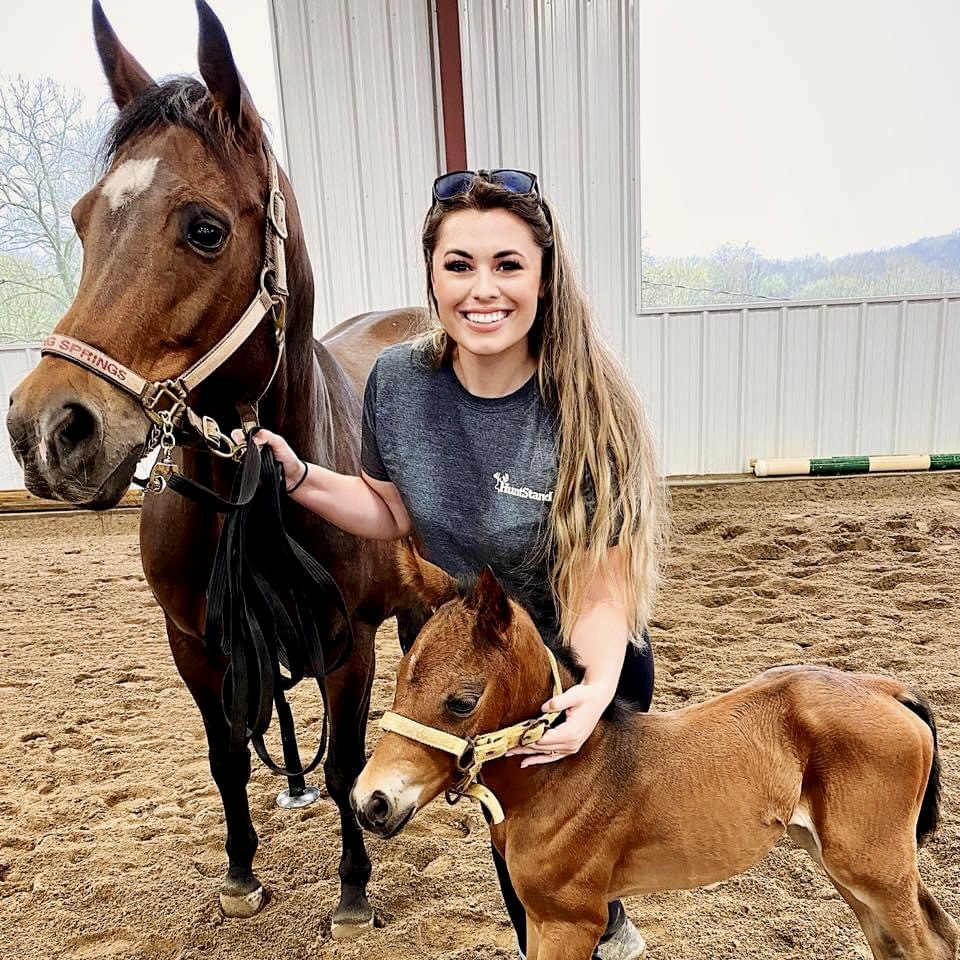 “I work with my babies from the time they hit the ground. They are led to and from the pasture everyday and I invest a lot of time teaching leading and ground manners such that, if they leave my barn, they are ready for the next step in life. If they stay in my barn, they will be easier for me to handle as they get older as well.”
“I work with my babies from the time they hit the ground. They are led to and from the pasture everyday and I invest a lot of time teaching leading and ground manners such that, if they leave my barn, they are ready for the next step in life. If they stay in my barn, they will be easier for me to handle as they get older as well.”
Van Slyke admits, “I’ve bought young horses in the past that were super well bred, but were a handful to manage. It worked out fine, but it was a lot more difficult in the beginning with them. Therefore, I believe it is a real benefit to raise foals from the beginning, if you can.”
Disadvantages of Pre-Birth Sales
The biggest disadvantage with all pre-birth sales is the risk.
“Embryo sales do not typically come with live foal guarantees and so many things can happen before you have a healthy foal on the ground,” Van Slyke cautions. “The embryo might not take, the recipient mare could slip or abort the foal, or there could be foaling complications. And, you still invest a good amount of money up front to have that embryo!”
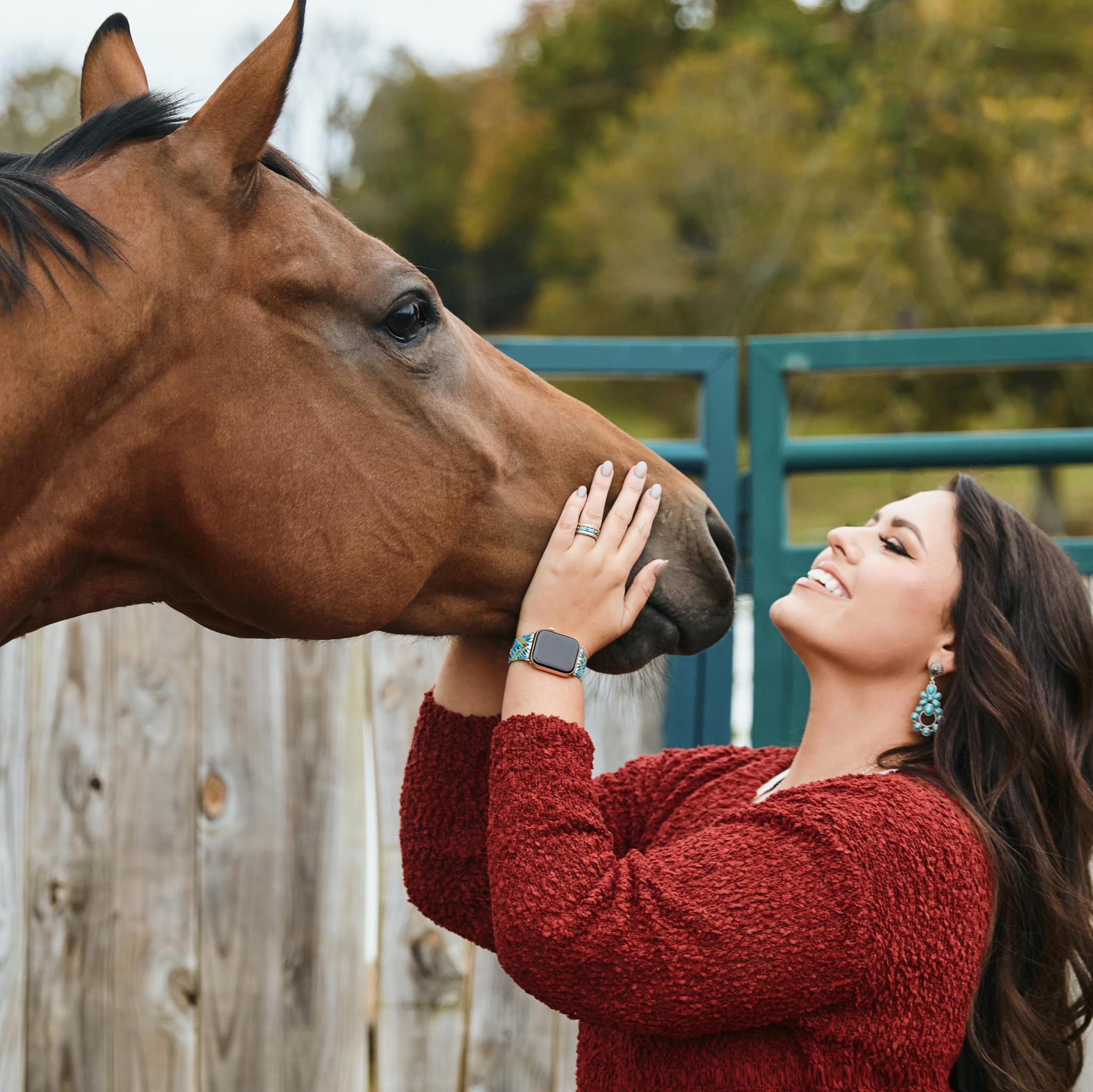 “Although most in-utero sales do come with some sort of live foal guarantee, there is still the risk that you won’t get what you were hoping for. Not every great cross on paper turns out as great as you hoped. Additionally, if you are wanting something specific like a bay roan filly…well, the odds aren’t going to be in your favor if you buy in-utero.”
“Although most in-utero sales do come with some sort of live foal guarantee, there is still the risk that you won’t get what you were hoping for. Not every great cross on paper turns out as great as you hoped. Additionally, if you are wanting something specific like a bay roan filly…well, the odds aren’t going to be in your favor if you buy in-utero.”
“In order to have a pre-birth sale be worth it, you have to be willing to assume a good amount of risk as the buyer and, as a seller in an in-utero scenario, you have to be willing to assume the risk that, if the foal comes out amazing, you just took a real price cut on it.”
Important Considerations
Given the risks and rewards, it is especially important to get these sort of sale agreements in writing. “It is critical to have a sale agreement put together in order to allocate risk and protect both sides. What happens if the embryo doesn’t take? What happens if the mare loses the foal or if the foal is stillborn? All of these things need to be considered when finalizing a sale.”
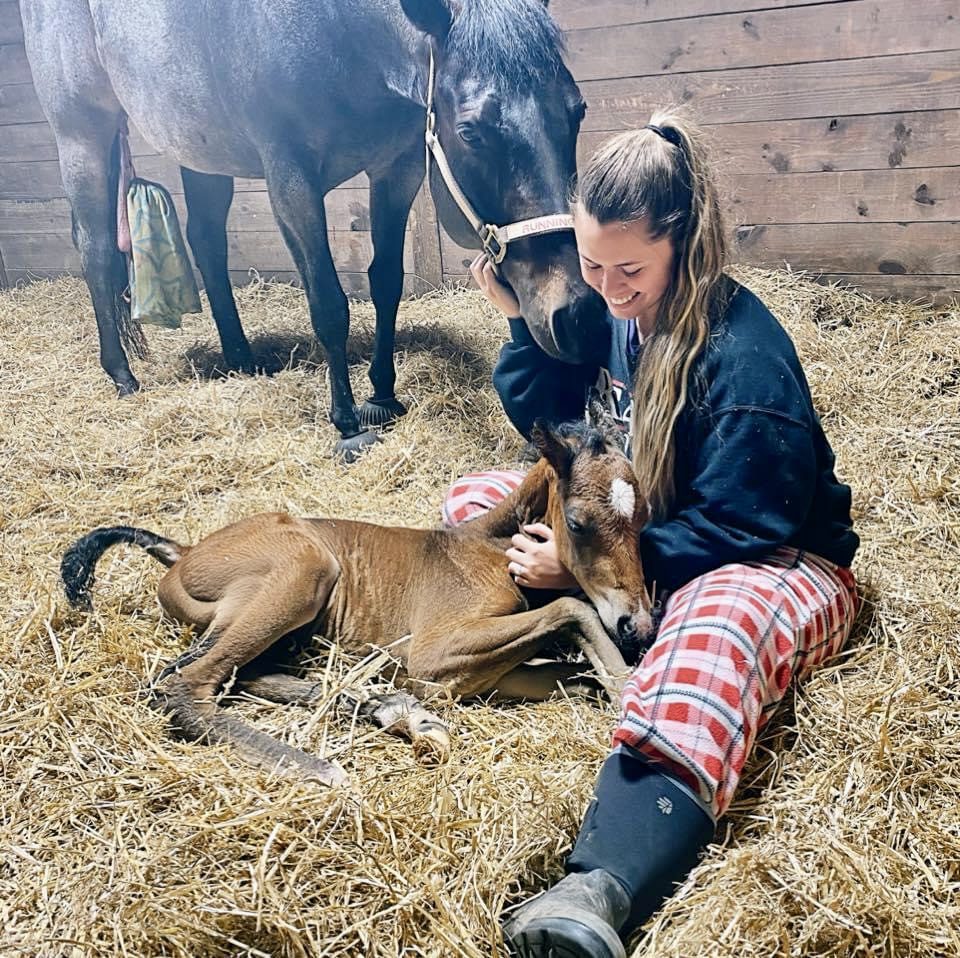 “For me, as a buyer or seller, I would want to ensure that the buyer gets embryo insurance in the embryo sale context. That will typically cost roughly 30% of the purchase price of the embryo – it is a very expensive form of insurance because the risks are so high, but it is a necessary requirement in my mind.”
“For me, as a buyer or seller, I would want to ensure that the buyer gets embryo insurance in the embryo sale context. That will typically cost roughly 30% of the purchase price of the embryo – it is a very expensive form of insurance because the risks are so high, but it is a necessary requirement in my mind.”
“In the in-utero context, I would require a downpayment to hold that foal and then, once it stands and nurses, all risk is transferred to the buyer.”
Another important consideration that Van Slyke considers is the value of the cross. “Pre-birth sales are really sales of potential. Sometimes it can be difficult to price a foal before they hit the ground, particularly with a maiden mare or a new cross. Therefore, as a seller, I would likely only want to sell an embryo or in-utero animal from a proven cross where I have an idea of what I’m getting and what its value is to me.”
“I feel the same on the purchasing end – it isn’t worth assuming all the risk of pre-birth purchases for something that is unproven and an even bigger gamble.”
Katie advises that it is critical to have access to a great equine reproductive vet.
 “Whether you are creating embryos for sale, selling foals in-utero, or buying embryos to transfer, it is so incredibly important that you utilize a vet that is familiar with the procedures and has had good success in the past. Their fees may be higher up front, but it is so worth it to reduce the risks associated with the process. There is no substitute for experience when you are investing so much money into your dream. Buying a foal pre-birth is typically cheaper than the cost of that same animal once it is born, but it really is far from cheap. ”
“Whether you are creating embryos for sale, selling foals in-utero, or buying embryos to transfer, it is so incredibly important that you utilize a vet that is familiar with the procedures and has had good success in the past. Their fees may be higher up front, but it is so worth it to reduce the risks associated with the process. There is no substitute for experience when you are investing so much money into your dream. Buying a foal pre-birth is typically cheaper than the cost of that same animal once it is born, but it really is far from cheap. ”
****
Finally, Van Slyke advises, “If you do your homework on the cross, are open to whatever result you end up with, get your agreement in writing, and have a great vet on hand, the chances are that both sides will be pleased with the outcome.”
“This is a breeding frontier and I am really excited to see continued advances in breeding methods and how that will impact the market in the future.”


